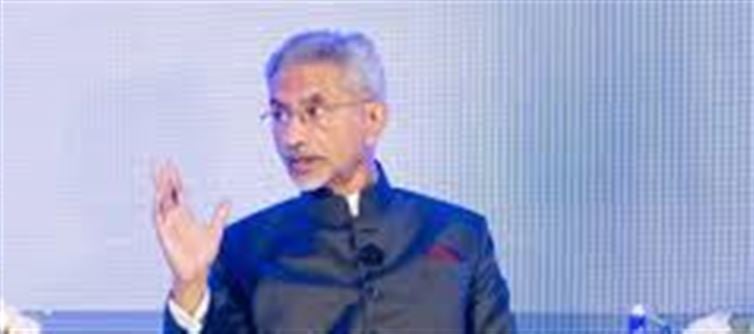
1. The Context of Jaishankar's Statement
In a diplomatic speech on Wednesday, External Affairs minister S. Jaishankar made a veiled reference to US President Donald Trump, as he discussed the evolving need for a global workforce. jaishankar emphasized that in today’s rapidly changing world, nations can no longer ignore the growing need for international talent, particularly in the context of shifting national demographics and workforce demands.
2. The Changing Demographics: Why a Global Workforce Matters
Jaishankar’s remarks reflect the growing realization that many nations are facing a shrinking working-age population due to factors like aging populations and low birth rates. As countries like the US, Japan, and parts of Europe grapple with these challenges, the importance of tapping into a global talent pool has never been more crucial.
· Aging Populations: In many Western countries, the workforce is steadily aging, which limits the number of people available to work in key industries. This trend creates a growing gap that can only be filled by welcoming workers from younger and more populous nations.
· Changing Global Dynamics: jaishankar suggested that nations can no longer ignore the fact that the demand for talent—especially in fields like technology, engineering, and healthcare—is global. Nations must adapt to the new reality of a global workforce, which transcends borders.
3. A Veiled Critique of Trump's "America First" Agenda
Jaishankar’s remarks appear to be a subtle critique of Trump’s "America First" policies, particularly those that have targeted H-1B visas and foreign workers. Under the trump administration, there were multiple restrictions and reforms aimed at reducing the number of foreign workers coming into the US, especially in the tech and IT sectors, where countries like India provide a significant portion of talent.
· H-1B Visa Controversy: The H-1B visa program, which allows foreign professionals to work in the US, has been a point of contention. Trump’s administration placed various restrictions on this visa category, arguing it took jobs away from American workers. jaishankar, however, is highlighting that such protectionist measures may not be sustainable in the long term.
· Nationalism vs. Globalization: The tension between nationalistic policies (like Trump's emphasis on limiting immigration) and the need for a global workforce is becoming more pronounced as countries realize that limiting foreign talent can hinder their own economic growth and innovation.
4. Jaishankar's Call for Adaptability in Global Workforce Dynamics
The indian Foreign minister pointed out that countries must adapt to the reality of a globalized workforce. He underlined that India, with its young and tech-savvy population, has long been a major contributor to the global workforce, particularly in the IT and software development sectors.
· India’s Role: india has been a key supplier of skilled professionals to global markets, particularly the US, in fields such as information technology, engineering, and medicine. jaishankar stressed that India's role as a key player in this global talent pool will only grow in the coming years.
· Economic Benefits: By embracing a global workforce, nations can ensure a steady supply of talent for sectors where local labor markets are insufficient, benefiting their economies and innovation.
5. The Way Forward: Cooperation Over Isolation
Jaishankar’s statement also carries a broader message for global cooperation. In an increasingly interconnected world, isolating oneself from global talent and knowledge flows could be detrimental to a nation’s progress. Instead, fostering international collaboration and cooperation—especially in technology, science, and healthcare—will be vital for addressing future challenges.
· Global Solutions to Global Problems: Whether it’s tackling climate change, pandemics, or economic crises, a global workforce brings diverse perspectives and expertise, allowing nations to collectively address pressing challenges.
6. Conclusion: Embracing Globalization and Moving Beyond Protectionism
Jaishankar’s message is clear: as the world evolves, protectionist and isolationist policies will struggle to meet the demands of the future. Nations must embrace a global workforce to secure their economic futures, particularly in the face of demographic shifts and the increasing complexity of global challenges. As countries like the US continue to face internal debates over immigration and foreign workers, Jaishankar’s call for adaptability and international cooperation is a timely reminder that the future of work is inherently global.
In this era of globalization, the need for cross-border collaboration is more pressing than ever, and it is critical that nations move beyond short-term nationalistic measures to engage in a shared global workforce that drives prosperity for all.
Disclaimer:
The views and opinions expressed in this article are those of the author and do not necessarily reflect the official policy or position of any agency, organization, employer, or company. All information provided is for general informational purposes only. While every effort has been made to ensure accuracy, we make no representations or warranties of any kind, express or implied, about the completeness, reliability, or suitability of the information contained herein. Readers are advised to verify facts and seek professional advice where necessary. Any reliance placed on such information is strictly at the reader’s own risk..jpg)




 click and follow Indiaherald WhatsApp channel
click and follow Indiaherald WhatsApp channel